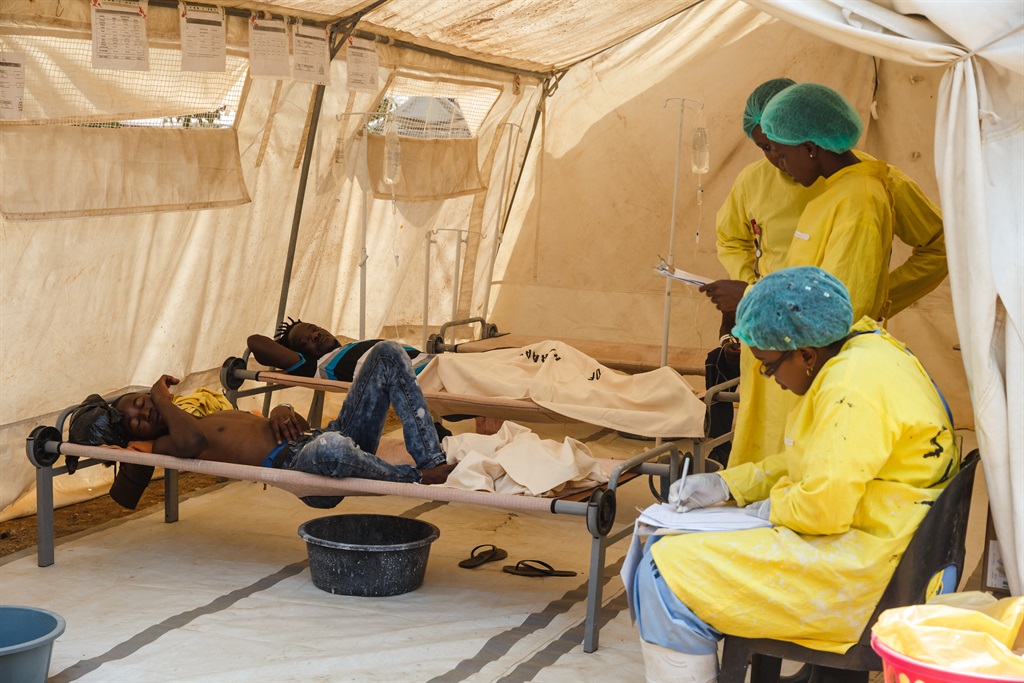
- Zimbabwe has recorded 4 500 cholera cases since February, with almost 100 deaths being reported.
- In some areas, public gatherings, such as funerals and cooking for the public, have been banned.
- Poor water supply in major cities is one of the biggest challenges in dealing with the disease.
A resurgent cholera outbreak in Zimbabwe has seen the government restricting some gatherings, banning cooking at funerals in hotspot areas, and activating diarrhoea surveillance countrywide.
Since February this year, 4 500 cases have been recorded, resulting in almost 100 deaths.
The latest series of outbreaks was first recorded in five suburbs of Harare on Monday.
In a statement, the Harare City Council said three of the five known cases were linked to people who had recently visited Buhera District, which is a cholera hotspot in Manicaland Province.
Harare has gone for days without running water and there are fears the disease could spread fast in the city which has a population of almost two million people.
The government said part of the reason behind the cholera outbreak in Harare was the contamination of the city’s main water sources, Lake Chivero and the Manyame Dam.
Another factor was old water pipes.
“The committee [Civil Protection Unit] found out the main challenges affecting the City of Harare are as follows: heavy pollution of water supply dams [Chivero and Manyame] leading to excessive use of water treatment chemicals, aged units constantly breaking down, aged water supply infrastructure leading to a reduction in treatment capacity and high water losses, and failure by the City of Harare to pay for water treatment chemicals to meet the current treatment capacity of 520 megalitres per day,” said Information Minister Jenfan Muswere during a post-Cabinet media briefing.
In Buhera, where there is also a clean water crisis, the government said it was moving ahead with borehole drilling and public awareness programmes about the danger of cholera.
The matter came to light in Buhera when some Grade 7 pupils sitting for their final exams became sick.
Cholera has since spread to Zaka, a district in Masvingo province, in the south-east of the country.
Cholera is now present in 41 districts across the country’s 10 provinces.
In Zaka, the Ministry of Health and Childcare has issued a statement setting out new rules to be observed as it tries to fight the outbreak.
These are:
- The suspension of controlled gatherings and those sanctioned must be supervised by Ministry of Health personnel.
- All households must employ water purification methods such as boiling water and the use of aqua tablets.
- All church meetings have been suspended and funerals should be supervised by ministry officials.
- Food should not be cooked at funerals and the maximum number of people to attend funerals must be 50.
- Open markets have been suspended and selling food at undesignated premises is prohibited. Public beer halls have been shut down.
The Ministry of Health said as of 3 October, there were 904 laboratory-confirmed cases and 74 hospitalisations with a national recovery rate of 97%.
The outbreak had now spread to more than the 17 traditional cholera hotspot districts of Buhera, Chegutu, Chikomba, Chimanimani, Chipinge, Chitungwiza, Chiredzi, Harare, Gokwe North, Marondera, Mazowe, Shamva, Mutare, Murehwa, Mwenezi, Seke, and Wedza, the Ministry of Health said in a Tuesday evening update.
As of 3 October, 74 cases were recorded in Bikita CTC (8), Chiredzi (2), Zaka (4), Masvingo Province; Buhera (45), Chipinge (6), Makoni (1), Mutare (1), Mutasa (1) in Manicaland Province; Zvimba (1), Mhondoro-Ngezi (1) in Mashonaland West Province; and BRIDH (4) in Harare Province.
Meanwhile, the Amalgamated Rural Teachers Union of Zimbabwe (ARTUZ) has urged the government to close schools where cholera is on the rise.
The union said:
Since February, when the first case was detected in Chegutu, Mashonaland West Province, the World Health Organisation has donated cholera kits and medical supplies to the Ministry of Health as part of ongoing efforts to combat the outbreak.
If neglected, the acute diarrheal disease can cause death in as little as six hours.
Zimbabwe faces difficulties ensuring everyone has access to clean, safe drinking water and adequate sanitation, particularly in crowded and unplanned urban and rural populations.


